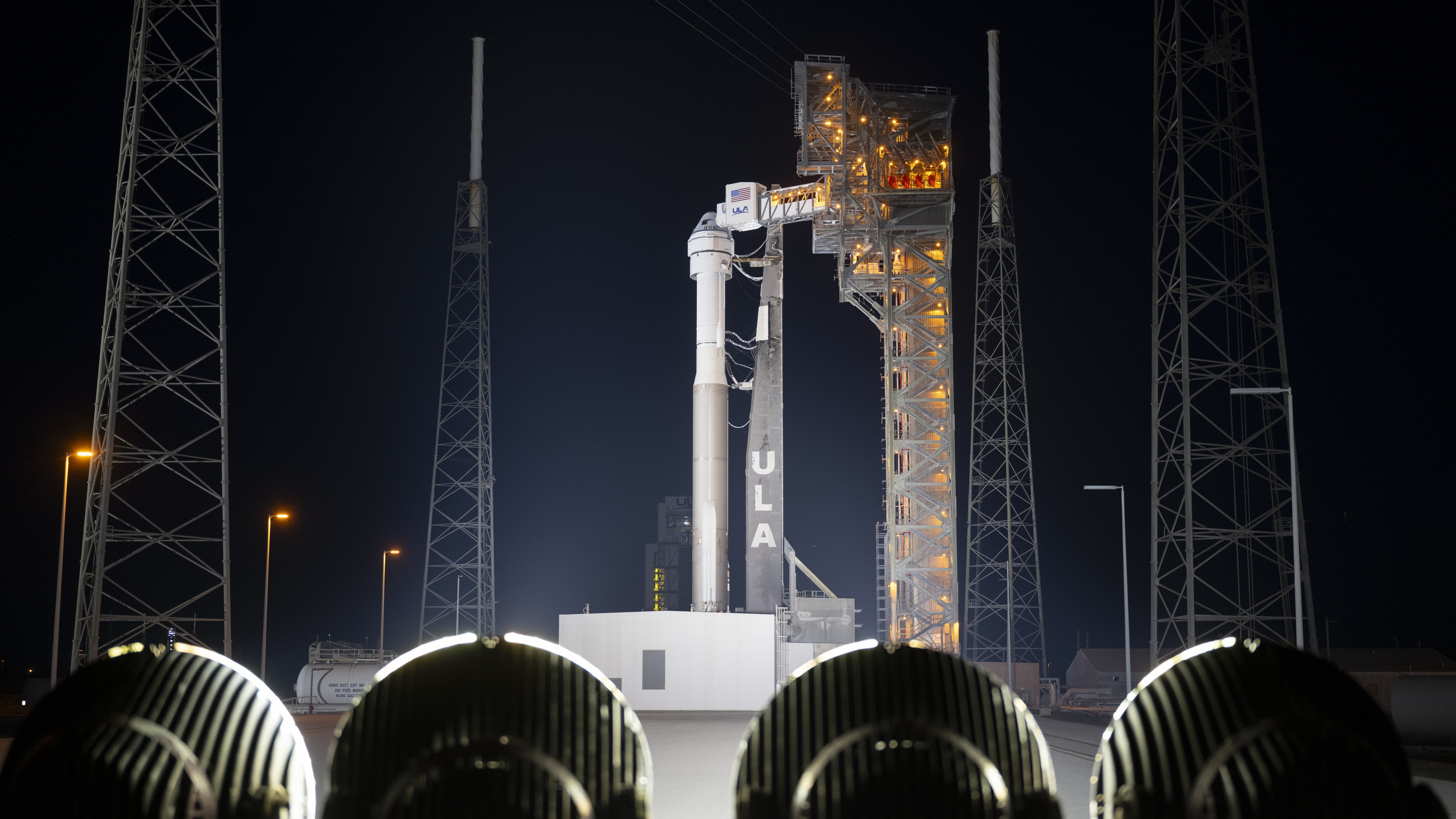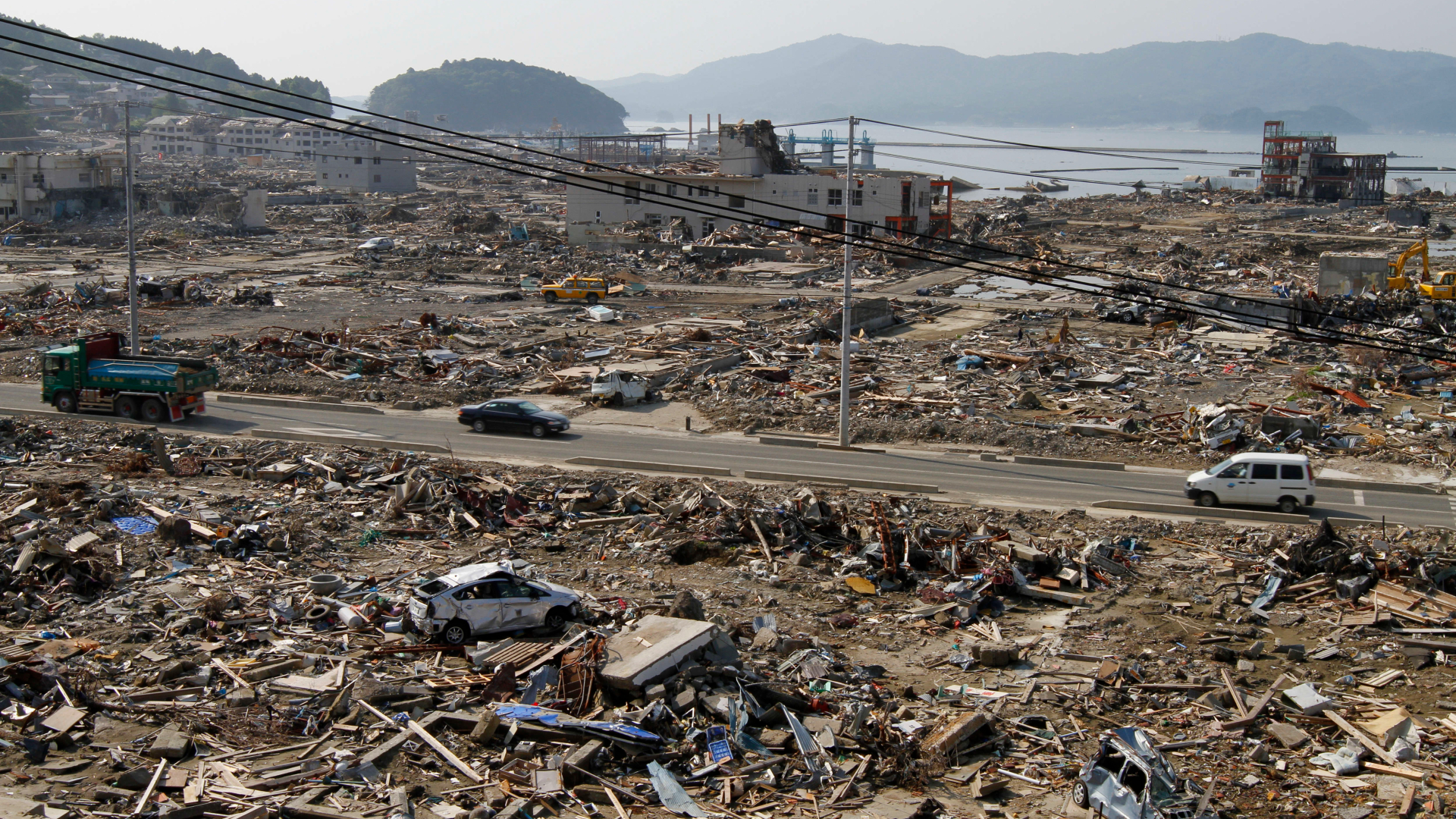Boeing's 1st Starliner astronaut launch scrubbed due to loud buzzing valve
The first crewed launch of Boeing's Starliner space capsule was canceled on Monday (May 6) due to a loudly buzzing valve on the Atlas V rocket carrying it. The delay is yet another headache for Boeing in its attempt to get its Starliner capsule up and running.

Get the world’s most fascinating discoveries delivered straight to your inbox.
You are now subscribed
Your newsletter sign-up was successful
Want to add more newsletters?

Delivered Daily
Daily Newsletter
Sign up for the latest discoveries, groundbreaking research and fascinating breakthroughs that impact you and the wider world direct to your inbox.

Once a week
Life's Little Mysteries
Feed your curiosity with an exclusive mystery every week, solved with science and delivered direct to your inbox before it's seen anywhere else.

Once a week
How It Works
Sign up to our free science & technology newsletter for your weekly fix of fascinating articles, quick quizzes, amazing images, and more

Delivered daily
Space.com Newsletter
Breaking space news, the latest updates on rocket launches, skywatching events and more!

Once a month
Watch This Space
Sign up to our monthly entertainment newsletter to keep up with all our coverage of the latest sci-fi and space movies, tv shows, games and books.

Once a week
Night Sky This Week
Discover this week's must-see night sky events, moon phases, and stunning astrophotos. Sign up for our skywatching newsletter and explore the universe with us!
Join the club
Get full access to premium articles, exclusive features and a growing list of member rewards.
NASA has postponed the first crewed launch of Boeing’s Starliner capsule due to an issue with a noisy valve on the rocket meant to carry it into space.
Boeing's Starliner crew capsule was due to blast off from Florida's Cape Canaveral Space Force Station at 10:34 p.m. ET on Monday (May 6) with NASA astronauts Barry Wilmore and Sunita Williams on board. The two-person crew will be joining a team of astronauts on the International Space Station (ISS).
But two hours before the scheduled liftoff, a valve on the ship's Atlas V rocket began buzzing at an audible 40 hertz, forcing the flight team to halt the mission.
"Today's Starliner launch is scrubbed as teams evaluate an oxygen relief valve on the Centaur Stage on the Atlas V," NASA representatives wrote in a post on the social platform X, formerly Twitter. "Our astronauts have exited Starliner and will return to crew quarters."
Boeing developed the Starliner capsule as a part of NASA's Commercial Crew Program, a partnership between the agency and private companies to ferry astronauts into low Earth orbit following the retirement of NASA's space shuttles in 2011. SpaceX's Crew Dragon also came from this initiative and has racked up 10 successful missions since it began operating in 2020.
But Boeing's capsule has lagged significantly behind. Starliner's first uncrewed test flight in 2019 was scuppered by a software fault that placed it in the wrong orbit, and a second attempt was held back by issues with a fuel valve. After more reviews last year, the company had to fix issues with the capsule's parachutes and remove around a mile (1.6 kilometers) of tape that was found to be flammable.
Get the world’s most fascinating discoveries delivered straight to your inbox.
However, this latest setback was related to the Saturn V rocket, which TKTK and was due to take Boeing's Starliner into orbit.
"Right now we are going through all the data," Tory Bruno, CEO of the United Launch Alliance which owns the Atlas V rocket, said at a post-scrub press conference. "[There's] a fair chance we'll know tomorrow whether the valve exceeded its life or not or whether it has enough life against the qual limit that we established to do another attempt."
The earliest window for a second launch attempt opens on Friday (May 10), although NASA has yet to announce a new launch date.

Ben Turner is a U.K. based writer and editor at Live Science. He covers physics and astronomy, tech and climate change. He graduated from University College London with a degree in particle physics before training as a journalist. When he's not writing, Ben enjoys reading literature, playing the guitar and embarrassing himself with chess.
 Live Science Plus
Live Science Plus










